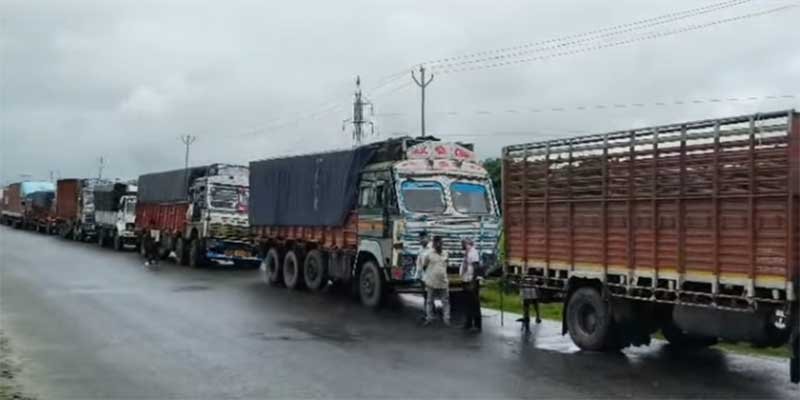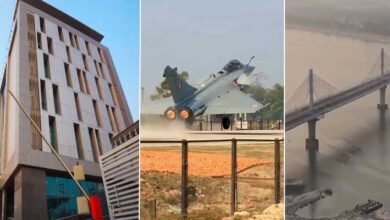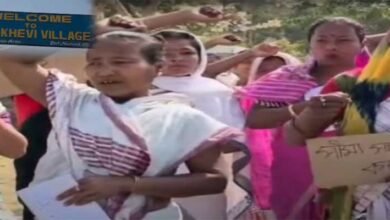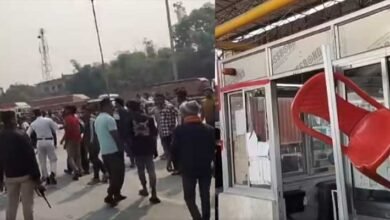Assam: Moran Community Launches Indefinite Economic Blockade in Tinsukia, Demanding ST Status
The blockade has brought major economic activities to a standstill along key national highways, with protesters forming human chains to prevent trucks and tankers from moving.

TINSUKIA – In a bold escalation of their decades-long struggle for recognition, the All Moran Students’ Union (AMSU) has imposed an indefinite economic blockade in Assam’s Tinsukia district, halting the transport of essential commodities like oil, coal, tea, and timber.
The protest, which began at 5 a.m. today, stems from the community’s frustration over unfulfilled promises to grant Scheduled Tribe (ST) status to the Moran people, one of Assam’s oldest indigenous groups.
The blockade has brought major economic activities to a standstill along key national highways, with protesters forming human chains to prevent trucks and tankers from moving.
AMSU leaders, supported by six other Moran organizations, described the action as a “peaceful but firm” measure to pressure both the state and central governments.
“We have been betrayed by successive regimes—Congress, AGP, and now BJP. Prime Minister Modi promised ST status in 2014, but after 10 years, we remain classified as Other Backward Classes (OBCs). This blockade will continue until our demand is met,” said Jaikanta Moran, AMSU general secretary, during a press briefing.
Also Read- Multiple Landslides Disrupt Traffic and Prompt Travel Advisory
The Morans, numbering around 200,000 and concentrated in Upper Assam, argue that ST recognition is crucial for safeguarding their cultural identity, land rights, and access to affirmative action in education, employment, and political representation.
They also demand the elevation of the Moran Autonomous Council—established in 2020 under state legislation—to full Sixth Schedule status, which would grant greater autonomy similar to councils in Bodoland, Dima Hasao, and Karbi Anglong.
This agitation follows a massive torchlight rally on September 11 in Tinsukia, where over 20,000 Morans gathered ahead of Prime Minister Narendra Modi’s two-day visit to Assam on September 13. Protesters breached police barricades during the event, chanting slogans against “political betrayal” and issuing a 72-hour ultimatum for government action.
Also Read- PM Modi Inaugurates Assam Bioethanol Plant, Lays Foundation for Polypropylene Unit in Golaghat
However, Modi’s visit made no mention of the ST demand, fueling further resentment among the community and five other groups—the Tai-Ahom, Chutia, Matak, Koch-Rajbongshi, and Tea Tribes—also awaiting recognition.
AMSU President Palindra Borah emphasized the community’s indigenous credentials, stating, “We are among Assam’s earliest inhabitants, yet denied the protections others enjoy. ST status is non-negotiable for our survival and dignity.”
Earlier protests in Margherita, Talap, and Kakopathar had already signaled rising tensions, but today’s blockade marks a significant intensification, potentially disrupting Assam’s vital oil and tea exports if prolonged.
State authorities have not yet issued an official response, though the economic fallout could pressure negotiations. Oil companies and tea estates in Tinsukia, a key industrial hub, are already reporting losses.









